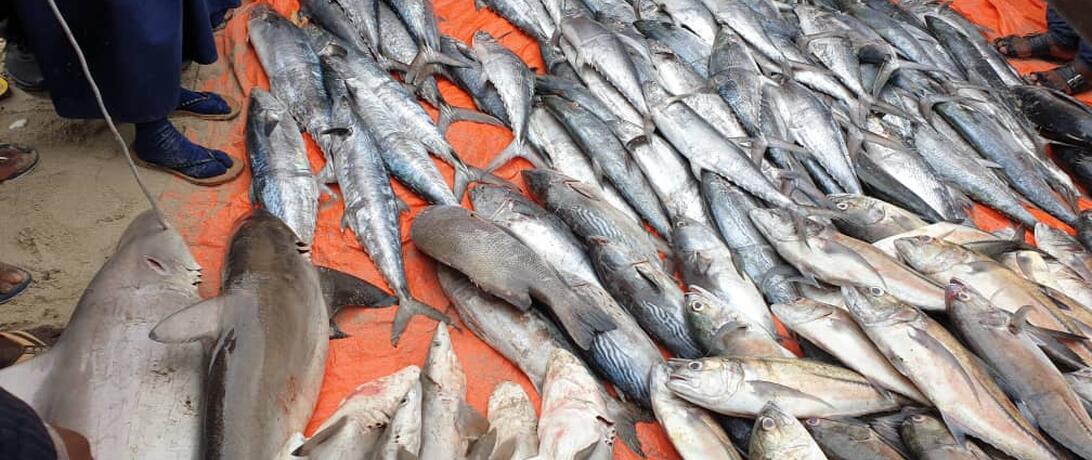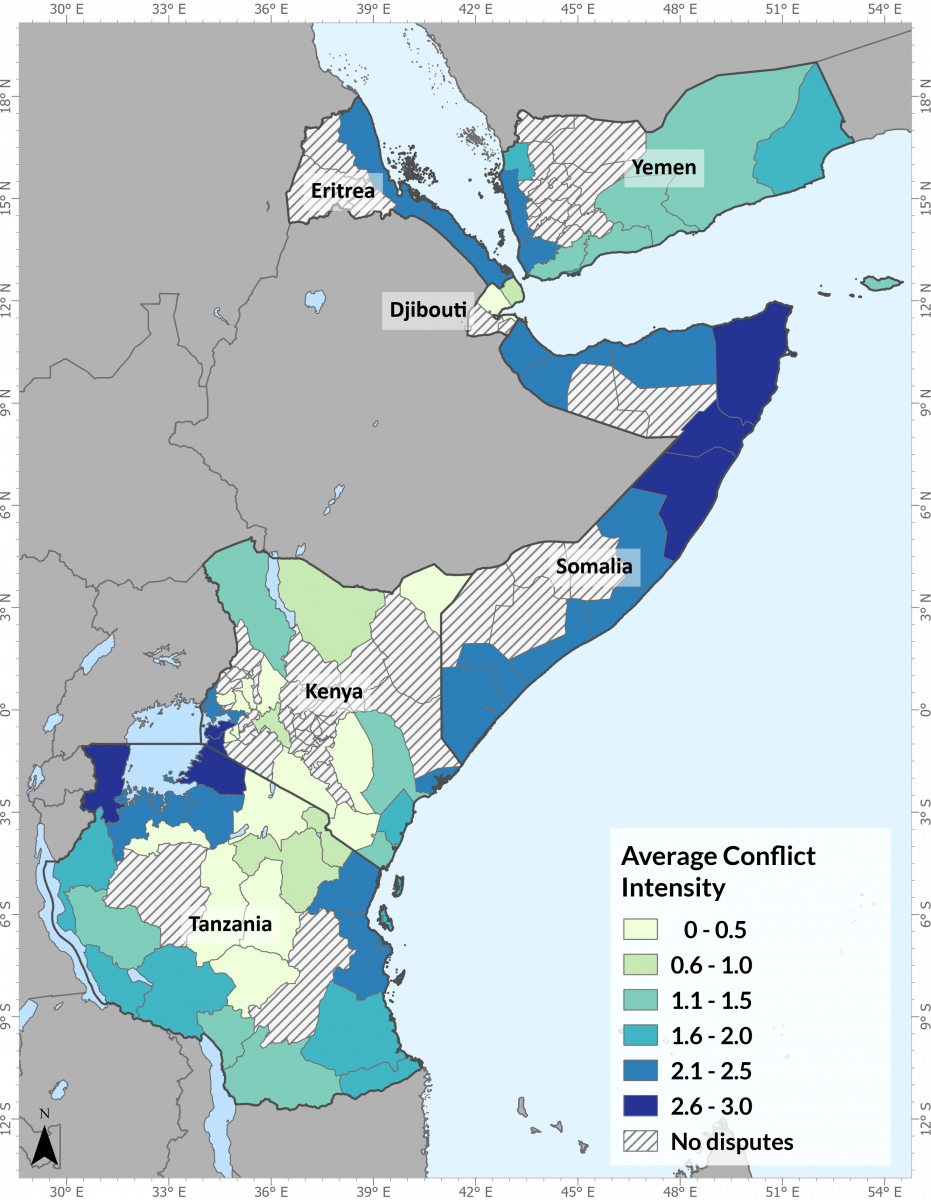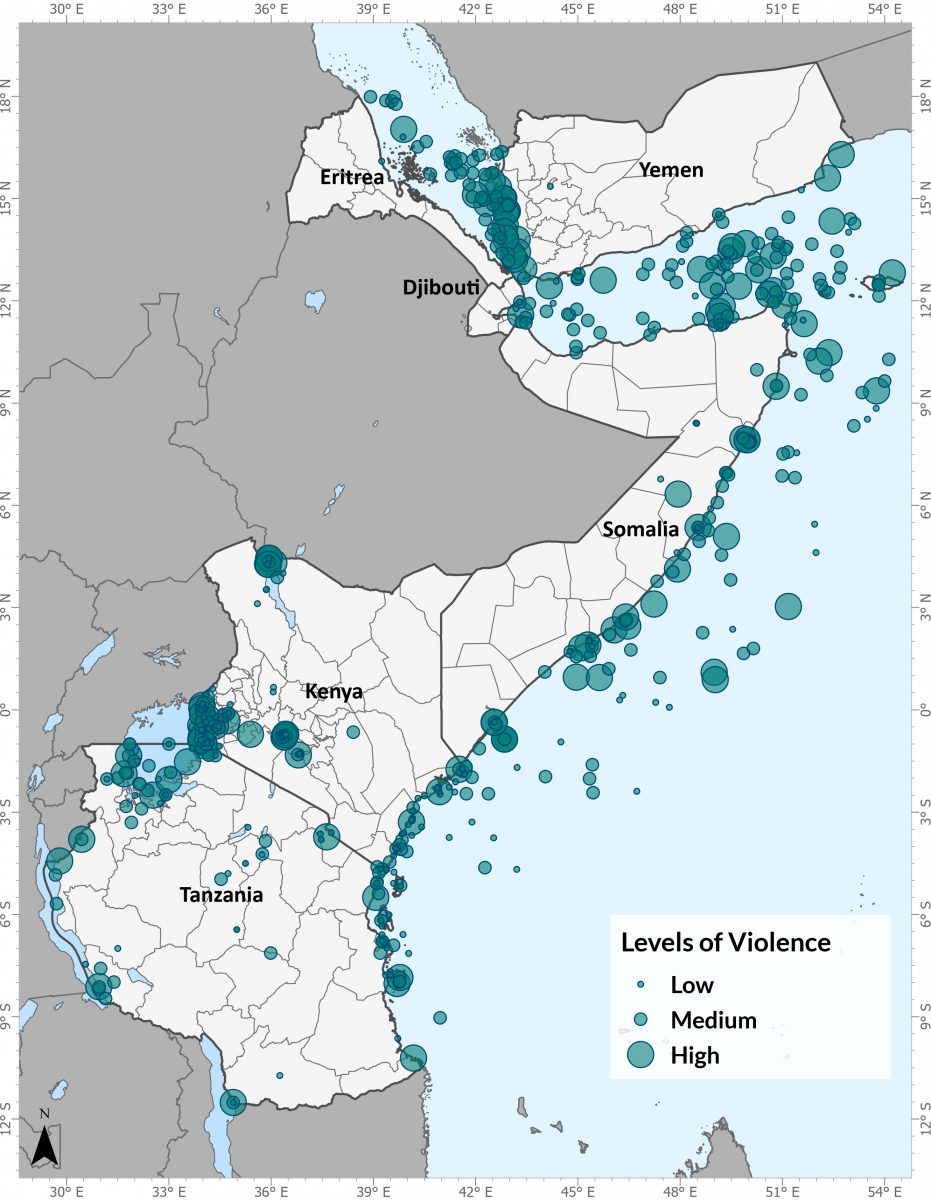
Secure Fisheries study emphasizes the importance of understanding fisheries conflict as a critical threat to stability and health within communities and illuminates how declining fish populations and efforts to reduce illegal fishing will undermine peace if not addressed.
One Earth Future’s Secure Fisheries program recently published a study on the causes and consequences of fisheries conflict around the Horn of Africa in the Journal of Peace Research. The research paper was spearheaded by Colleen Devlin, Researcher with Secure Fisheries, and included Director Sarah Glaser and academics from the University of Central Florida and Oregon State University who were previously interns with Secure Fisheries. The paper investigates the frequency, causes, and consequences of fisheries conflict around the Horn of Africa (Tanzania, Kenya, the Somali region, Djibouti, Eritrea, and Yemen).
The study emphasizes the importance of understanding fisheries conflict as a critical threat to stability and health within communities and illuminates how declining fish populations and efforts to reduce illegal fishing will undermine peace if not addressed. “Fisheries conflict is complex, underreported, and underinvestigated,” writes Devlin et al., and the conflict usually begins locally in coastal communities.
The paper investigates the frequency, causes, and consequences of fisheries conflict around the Horn of Africa (Tanzania, Kenya, the Somali region, Djibouti, Eritrea, and Yemen) from 1990 to 2017 through media reporting of both long-term aggregate regional fishing conflicts and discrete events between individual actors. Northeastern Africa in recent decades has seen high-intensity fisheries conflict with the Nile perch conflict in Lake Victoria and piracy in the Somali region.

The research found that the rate of conflict is gradually increasing throughout the region, with the main causes being illegal or foreign fishing, weak governance, poor resource governance, limited access, and piracy. Conflict rates often spiked with the arrival of foreign fishing boats or naval ships. The Secure Fisheries’ led research team found that Kenyan and Somali waters were the sites of two-thirds of 684 identified fisheries conflict events that resulted in 400 deaths, 500 injuries, and 4,000 arrests. With the exception of crime, generally through piracy, socio-economic issues did not motivate many individual actor disputes. Ecologically motivated disputes, such as over pollution in fishing grounds or declines in stocks, were common in more stable areas of Kenya and Tanzania, suggesting that ecological factors could drive conflict after socioeconomic and management issues are addressed.

Secure Fisheries continues to play a critical role in thought leadership surrounding the critical intersection between fisheries, food security, conflict, climate, and marine conservation. Fisheries provide the primary source of protein for 1.5 billion people across the globe, making them a critical component of food security and stability throughout the developing world. The majority of fishers in the world are particularly vulnerable to climate change and risk if fish stocks collapse. Conflicts and climate change will continue to lead to mass demographic shifts, as Secure Fisheries’ “Fish Wars” research in Tanzania has shown following the civil wars in Rwanda, Burundi, and the Congo, which only heightens Secure Fisheries and One Earth Future’s mandate in supporting fisheries co-management, conversation, and a world without war.
Secure Fisheries works on the critical intersection that fisheries conflicts have with peacebuilding as climate change continues to elevate the geopolitical role of fishing. This study seeks to highlight the threat of fisheries conflict, which historically has been unappreciated, to the stability and health of communities. The findings emphasize how to prevent these conflicts through resource management that promotes peacefully resilient fishing communities.
Secure Fisheries Researcher, Colleen Devlin, has also completed an analysis of fisheries conflict in Yemen and Somalia from 2018 to 2020 that will be available in 2022. Learn more about Secure Fisheries’ work at securefisheries.org.
Article Details
Published
Topic
Program
Content Type
News